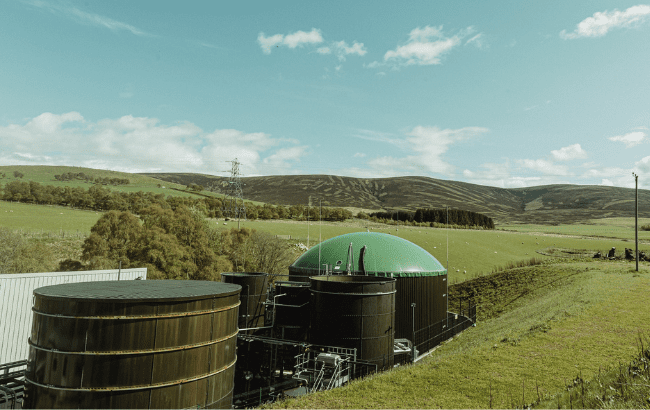This website uses cookies so that we can provide you with the best user experience possible. Cookie information is stored in your browser and performs functions such as recognising you when you return to our website and helping our team to understand which sections of the website you find most interesting and useful.
Balmenach Distillery gets £4 million upgrade
By Georgie CollinsInternational Beverage Holdings (IBHL) has completed an ‘ambitious’ £4 million (US$4.94m) upgrade of Balmenach Distillery in Speyside, Scotland.

The upgrade has made the distillery one of most sustainable in the Scotch whisky industry due to the implementation of a new anaerobic/aerobic digestion (AD) plant that uses micro-organisms to break down the liquid co-products of whisky production, such as pot ale and spent lees, allowing them to be processed on site.
This process produces clean bio-methane gas which feeds a combined heat and power (CHP) engine to generate power for the distillery and the grid, integrated with an existing biomass boiler that uses locally-sourced wood pellets to produce zero-carbon steam for the system.
The company’s group distillery manager, Sean Priestley, explained: “At IBHL there is a culture of genuine accountability for the environmental impact of our production process, which means we have been striving for cleaner, greener whisky production many years ahead of the current Scotch Whisky Association’s (SWA) sustainability target of net zero by 2040.
“The system we’ve built at Balmenach has been challenging, but a combination of investment, innovation, partnership working and perseverance are paying off, resulting in the significant reductions we are able to report in emissions and energy use today, which will only increase over time.”
Having paused the development during the pandemic, the site is now fully operational, and is having an immediate impact in terms of significantly reducing the distillery’s overall carbon footprint.
Each day, whisky co-products are processed to produce enough clean bio-methane gas to feed the CHP engine and generate renewable steam. This meets 100% of the distillery’s energy requirements.
Furthermore, the site’s energy efficiency has improved, and its Co2 emissions have reduced from 1.5kg to 0.5kg per litre of alcohol produced.
The system also cleans and returns 40% of processing waters back to the distillery’s watercourse, the Cromdale Burn, which is a tributary of the River Spey.
It has also seen a drastic reduction in the need for heavy goods vehicle movement at the site, with the subsequent removal of 12 tankers from Spey Valley roads every week.
The Balmenach project is IBHL’s biggest investment in sustainable whisky production to date, and represents ‘a major step forward’ in meeting the company’s commitment to using only renewable energy for production by 2040. The company says this goal is made possible by its early adoption of various clean fuel sources across its five distilleries.
The business no longer uses heavy fuel at any of its sites.
IBHL managing director Malcolm Leask added: ‘The completion of our £4m project at Balmenach leads our ambition to decarbonise production and achieve industry leading standards of sustainability in the future.
“Sustainability is a long held and central commitment in our business – from the Dow Jones Sustainability Index listing of our parent company ThaiBev, to the daily efforts of our distillery teams across Scotland to respect and care for the local land, lochs, and rivers that surround them.
“This is one of the industry’s oldest distilleries and it wasn’t built for efficiency. But nearly 200 years on, the improvements we are seeing in terms of energy use, emissions and efficiency show just what is possible in sustainability at such a historic site.”

